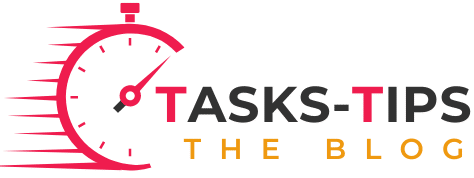Introduction:
In today’s fast-paced world, managing time under high-pressure situations is a crucial skill. Whether it’s a looming deadline, an unexpected crisis, or an overwhelming workload, effective time management can help maintain productivity and reduce stress. This article explores strategies for handling time management during high-pressure conditions and improving performance under stress.
1. Prioritize Tasks: Focusing on What Matters Most
When facing high pressure, prioritizing tasks becomes essential. Using techniques like the Eisenhower Matrix can help distinguish between urgent and important tasks. Research from The Harvard Business Review shows that prioritization helps in managing workload effectively, even under stressful conditions.
Tip: Use the Eisenhower Matrix to categorize tasks into four quadrants: urgent and important, important but not urgent, urgent but not important, and neither. Focus on completing tasks in the “urgent and important” quadrant first.
2. Break Tasks into Manageable Steps: Reducing Overwhelm
Breaking tasks into smaller, manageable steps can make large projects feel less overwhelming. The Journal of Applied Behavioral Science indicates that chunking tasks improves focus and reduces anxiety, making it easier to tackle complex projects.
Tip: Divide major tasks into smaller, actionable steps and set achievable milestones. Celebrate small victories to maintain motivation and reduce feelings of overwhelm.
3. Use Time-Blocking Techniques: Structuring Your Day
Time-blocking involves scheduling specific blocks of time for individual tasks or activities. This technique helps maintain focus and manage distractions effectively. Research published in The Journal of Productivity highlights that time-blocking can enhance time management and productivity, especially under pressure.
Tip: Allocate specific time blocks for each task and stick to the schedule as closely as possible. Include breaks between time blocks to recharge and prevent burnout.
4. Implement Stress-Reduction Techniques: Managing Stress Effectively
Effective stress management techniques, such as deep breathing exercises, meditation, or physical exercise, can help maintain clarity and focus under pressure. According to a study in The American Psychological Association, stress reduction techniques improve cognitive function and overall performance.
Tip: Incorporate stress-reduction practices into your daily routine. Even short breaks for deep breathing or a quick walk can help alleviate stress and improve focus.
5. Develop Contingency Plans: Preparing for the Unexpected
Having contingency plans in place can help manage unexpected challenges and maintain progress during high-pressure situations. Research from The International Journal of Project Management shows that well-prepared contingency plans improve project resilience and success.
Tip: Identify potential risks and develop contingency plans to address them. Prepare backup solutions and resources to ensure you can adapt quickly to unexpected changes.
6. Maintain a Balanced Perspective: Avoiding Perfectionism
Striving for perfection can increase stress and reduce productivity. Maintaining a balanced perspective and focusing on completing tasks efficiently, rather than perfectly, can help manage time better under pressure. A study in The Journal of Organizational Behavior emphasizes that realistic expectations improve performance and reduce stress.
Tip: Set realistic goals and focus on completing tasks to the best of your ability, rather than aiming for perfection. Recognize that progress is often more valuable than perfection.
7. Leverage Technology: Utilizing Tools for Efficiency
Technology can be a valuable ally in managing time and tasks under pressure. Tools like task managers, time trackers, and productivity apps can help streamline workflows and monitor progress. According to research in The Journal of Information Technology, leveraging technology enhances time management and efficiency.
Tip: Use productivity tools and apps to track tasks, set reminders, and manage deadlines. Explore options that fit your needs and integrate them into your workflow.

8. Communicate Effectively: Keeping Stakeholders Informed
Effective communication is essential for managing expectations and coordinating efforts during high-pressure situations. Keeping stakeholders informed helps avoid misunderstandings and ensures that everyone is aligned. Research in The Journal of Communication Management highlights that clear communication improves project outcomes and reduces stress.
Tip: Maintain open lines of communication with team members and stakeholders. Provide regular updates and address any concerns promptly to ensure everyone is on the same page.



